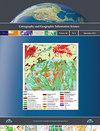Semantic conflation in GIScience: a systematic review
IF 2.4
3区 地球科学
Q1 GEOGRAPHY
Cartography and Geographic Information Science
Pub Date : 2021-11-02
DOI:10.1080/15230406.2021.1952109
引用次数: 4
Abstract
ABSTRACT Manifold providers from a wide range of initiatives (private organizations, volunteered efforts, social media, etc.) offer enormous data amounts with geospatial characteristics. These efforts of many data providers entail multiple data scenarios and imply many viewpoints about the same feature, involving different representations, accuracy, models, vocabularies, etc. Various techniques or processes are employed to deal with these heterogeneity problems related to diverse data sources within the conflation research area. However, semantic conflation has not been addressed widely in the literature, unlike geometrical conflation. Hence, it is unclear what issues semantic conflation tries to solve and what activities, methods, metrics, and techniques have been used in existing GIScience investigations. In this article, we carry out a systematic review of approaches that focus on semantic aspects for geospatial data conflation. Besides, we analyze a wide selection of contributions following different criteria to depict a detailed semantic conflation status in GIScience. Our contributions are: (i) an overview of semantic conflation application domains, (ii) a characterization of semantic issues within these domains, (iii) the recognition of gaps and weaknesses of collected researches, and (iv) several open challenges and opportunities for next steps in this GIScience research area.gisscience中的语义合并:系统回顾
来自广泛倡议(私人组织,志愿者努力,社会媒体等)的多种提供商提供具有地理空间特征的大量数据。许多数据提供者的这些努力涉及多个数据场景,并暗示了关于同一特征的许多观点,涉及不同的表示、准确性、模型、词汇表等。在合并研究领域中,采用各种技术或过程来处理与不同数据源相关的异构问题。然而,与几何合并不同,语义合并并没有在文献中得到广泛的解决。因此,目前尚不清楚语义合并试图解决什么问题,以及在现有的GIScience调查中使用了哪些活动、方法、指标和技术。在本文中,我们对地理空间数据合并的语义方面的方法进行了系统的回顾。此外,我们根据不同的标准分析了大量的贡献,以描述GIScience中详细的语义合并状态。我们的贡献是:(i)对语义合并应用领域的概述,(ii)对这些领域内的语义问题的表征,(iii)对收集的研究的差距和弱点的认识,以及(iv)在这个GIScience研究领域下一步的几个开放的挑战和机会。
本文章由计算机程序翻译,如有差异,请以英文原文为准。
求助全文
约1分钟内获得全文
求助全文
来源期刊
CiteScore
5.20
自引率
20.00%
发文量
23
期刊介绍:
Cartography and Geographic Information Science (CaGIS) is the official publication of the Cartography and Geographic Information Society (CaGIS), a member organization of the American Congress on Surveying and Mapping (ACSM). The Cartography and Geographic Information Society supports research, education, and practices that improve the understanding, creation, analysis, and use of maps and geographic information. The society serves as a forum for the exchange of original concepts, techniques, approaches, and experiences by those who design, implement, and use geospatial technologies through the publication of authoritative articles and international papers.

 求助内容:
求助内容: 应助结果提醒方式:
应助结果提醒方式:


